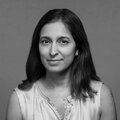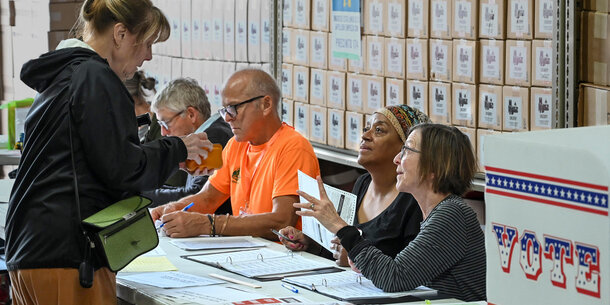The Georgia State Election Board has dominated headlines this summer, and for all the wrong reasons. Since July, three of its five board members have pushed through a series of ill-advised voting rule changes, including disruptive revisions to election certification, early voting procedures, and absentee ballot drop-off processes. These new rules, which are expected to significantly burden election workers and stoke doubts about election results, have sparked objections from election directors, several advocates, and Republican Secretary of State Brad Raffensperger. Additionally, these same board members tried holding a separate meeting without the full board present to advance further rule changes — against the advice of the attorney general’s office. In its latest move, the board has suggested giving partisans special access to observe and report on elections in Fulton County, the state’s most populous county and a frequent target of the election denial movement.
With less than three months until Election Day, some board members are attempting to interfere with a near-final plan for independent monitors to oversee Fulton County’s 2024 elections alongside the party-appointed monitors already permitted by state law. The board considered a slate of biased monitors, including a spreader of election conspiracies in Pennsylvania who worked on an infamous sham postelection audit in Arizona’s Maricopa County, as well as a former Pennsylvania legislator who sought to reverse the certification of that state’s electors in 2020. Appointing monitors who lack the necessary standards and objectivity to conduct a credible election review is a recipe for a harmful disinformation campaign that could heighten calls to throw out legitimate votes and threaten both the security of and confidence in Fulton County’s election results.
Following the state’s tumultuous June 2020 primary, in which voters across the state stood in hours-long lines, Fulton County entered into a consent order with the state election board to improve its procedures for the general election. This included having independent monitor Carter Jones observe the county’s election processes. While noting various “mismanagement issues,” Jones confirmed there was no “dishonesty, fraud, or intentional malfeasance.”
In May, the state election board voted to appoint another independent monitor for Fulton County’s 2024 general election as a precaution after the county inadvertently double-scanned ballots during the state’s 2020 presidential election recount. While an investigation found no fraud, nor did the ballots in question impact the election outcome, Fulton County did its part to avoid future mistakes. At its July 11 meeting, the county elections board approved five independent election monitors to observe election operations from August through November. The monitors, who were also approved by Secretary Raffensperger’s office, all have extensive experience in election administration. Selections include a retired county election director, a former general counsel in the secretary of state’s office, the county’s 2020 general election monitor, and a former member of the Georgia State Election Board.
Rather than finalizing the county and secretary’s proposal, though, members of the state election board proposed an alternate slate of monitors that included biased individuals with questionable records. They also impermissibly asked the attorney general to reopen the investigation into Fulton County’s handling of the 2020 election, despite the first investigation finding no evidence of fraud. (The attorney general declined to do so in an official opinion.) The board’s chairman said at an August 19 meeting that he will meet with Fulton County’s elections chair next week to discuss the monitors further.
What should happen at this upcoming meeting is the board’s signoff on the independent monitors that both Fulton County and the secretary approved.
Transparency in elections is necessary for public trust. It holds external reviewers accountable while encouraging objective findings. Since 2020, however, several states have initiated or demanded that officials take part in a number of sham election reviews that are antithetical to the basic principles that govern auditors, including in Pennsylvania, Wisconsin, and, perhaps most notably, Maricopa County, Arizona. In each of these partisan review efforts, “auditors” failed to meet basic security, accuracy, and reliability measures that are essential for credible election audits.
Fortunately, Fulton County can avoid joining this list: even if the state election board proposes a new slate of monitors, the county elections board can simply stick to its original choices. Two of the selected monitors have demonstrated their expertise and objectivity in Fulton County elections specifically, and all are neutral, experienced, and knowledgeable individuals who meet the standards for a credible election review.
The Fulton County Elections Board should stand firm against any attempts to grant biased, partisan monitors special access to sensitive election records, manuals, and equipment. Such a move would be ripe for abuse, give a veneer of legitimacy to misleading claims about elections, and waste taxpayer money. Any scenario where unqualified monitors are given state credentials to inject their biases into the democratic process through an extensive review process would be dangerous for the county and election results writ large. And with trained party-appointed poll watchers already set to observe polling places and ballot-counting sites in Georgia, such risky measures are plainly unnecessary.




